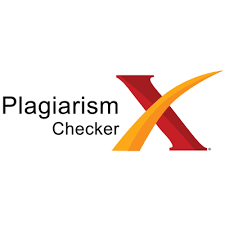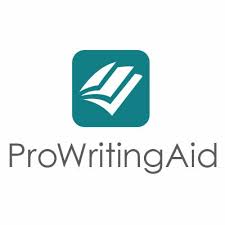DIFFERENCES IN STUDENT CREATIVITY BY APPLYING THE COOPERATIVE LEARNING TYPE TPS AND LEARNING MODEL PBL
DOI:
https://doi.org/10.30740/jee.v4i1p18-24Keywords:
Students Creativity, Cooperative Learning Type TPS, Learning Model PBLAbstract
The purpose of this study was to see the differences in student creativity by applying 2 learning models, namely the TPS cooperative learning model and the PBL learning model in class VIII of the SMP Swasta Mentari Bangsa Medan. This research is an experimental research. The subjects in this study were all students of class VIII SMP Swasta Mentari Bangsa Medan which consisted of 2 classes. While the object in this study is the creativity of students in the TPS and PBL learning models. This research is supported by several tools such as lesson plans, student activity sheets (LAS), and student handbooks. The instrument used in this study was an essay test of 4 questions that had been tested and declared valid. The average TPS class student pretest was 34,243 while the post-test average was 40,729. PBL class students obtained an average pretest of 35.138 while the average post-test was 46.861. From the calculation results obtained = -3,212 and = 1,996 with dk = 54 and the real level α = 0.05. It can be seen that tcount is not between the interval -1.996 <t <1.996 so that H0 is rejected and Ha is accepted. So from the results of research and hypothesis testing it is concluded that there are significant differences in student creativity by applying the TPS type cooperative learning model and the PBL learning model on cube and block material in class VIII of the SMP Swasta Mentari Bangsa Medan.
References
Abdurrahman, M. (2012). Pendidikan Bagi Anak Berkesulitan Belajar. Jakarta: Rineka Cipta.
Aini, H. M., Mardiyana., & Sari, D. R. (2015). Eksperimentasi Model Pembelajaran Berbasis Masalah dan Pembelajaran Kooperatif Tipe Think Pair Share pada Materi Bangun Ruang Sisi Datar Ditinjau dari Kreativitas Siswa Kelas VIII SMP Negeri Se-Kabupaten Pacitan Tahun Pelajaran 2013/2014. Jurnal Elektronik Pembelajaran Matematika, 3(1), 12-26.
Ananggih, G. W., Yuwono, I., & Sulandra, I. M. (2017). Pembelajaran Berbasis Masalah untuk Meningkatkan Pemahaman Matematika Siswa Kelas IX SMP. JKPM: Jurnal Kajian Pembelajaran Matematika, 1(1), 25-35.
Ayudya, M. S., & Rahayu, T. S. (2020). Efektivitas Model Problem Based Learning dan Think Pair Share Ditinjau dari Kemampuan Berpikir Kritis Siswa Kelas 5 dalam Pelajaran Matematika Dasar. Jurnal Pendidikan Tambusai, 4(1), 272-281.
Gunawan, S., & Widiati, S. (2019). Tuntutan dan Tantangan Pendidik dalam Teknologi di Dunia Pendidikan di Era 21. Prosiding Seminar Nasional Pendidikan Program Pascasarjana Universitas PGRI Palembang, Palembang, 3 Mei 2019, 594-601.
Isjoni. (2010). Cooperative Learning. Jakarta: Alfabeta.
Istiarsono, Z. (2018). Tantangan Pendidikan Dalam globalisasi: Kajian Teoritik. Jurnal Intelegensia, 1(02), 19-24.
Lie, A. (2010). Cooperatif Learning. Jakarta: Gramedia Widia Sarana Indonesia.
Livia, A. (2018). Peningkatan Kemampuan Berpikir Kreatif dan Hasil Belajar Siswa Kelas V pada Pembelajaran IPA Melalui Metode Discovery Learning di SDN Ngablak. Diakses di: https://repository.usd.ac.id/23836/2/141134230_full.pdf
Luddin, M. R. (2008). Modernisasi dan Rekontekstuliasasi Pendidikan di Era Globalisasi. Jurnal Pendidikan dan Kebudayaan, 75(14), 1120-1139.
Munandar, U. (2009). Mengembangkan Bakat dan Kreativitas Anak Sekolah. Jakarta: Rineka Cipta.
Naldi, H. (2018). Perkembangan Kognitif, Bahasa, dan Perkembangan Sosioemosional Serta Implikasinya dalam Pembelajaran. Jurnal Socius: Journal of Sociology Research and Education, 5(2), 102-114, Doi: https://doi.org/10.24036/scs.v5i2.110.
Padmavathy, R. D., & Mareesh. K. (2013). Effectiveness of Problem Based Learning in Mathematics. International Multidisciplinary e-Journal, 2(1), 45-51.
Putra, S. R. (2013). Desain Belajar Mengajar Kreatif Berbasis Sains. Jogjakarta: Diva Press.
Santoso, E. (2018). Pembelajaran Berbasis Masalah dalam Upaya Meningkatkan Kemampuan Pemahaman Matematik Siswa. Jurnal THEOREMS (The Original Research of Mathematics), 2(2), 80-87.
Tarhan, L., & Acar, B. (2013). Problem Based Learning in Acids and Bases: Learning Achievements and Students’ Beliefs. Journal of Balitic Science Education, 12(5), 565-578.
Trianto. (2010). Model-Model Pembelajaran Inovatif Berorientasi Kontukvisme. Jakarta: Prestasi Pustaka.









